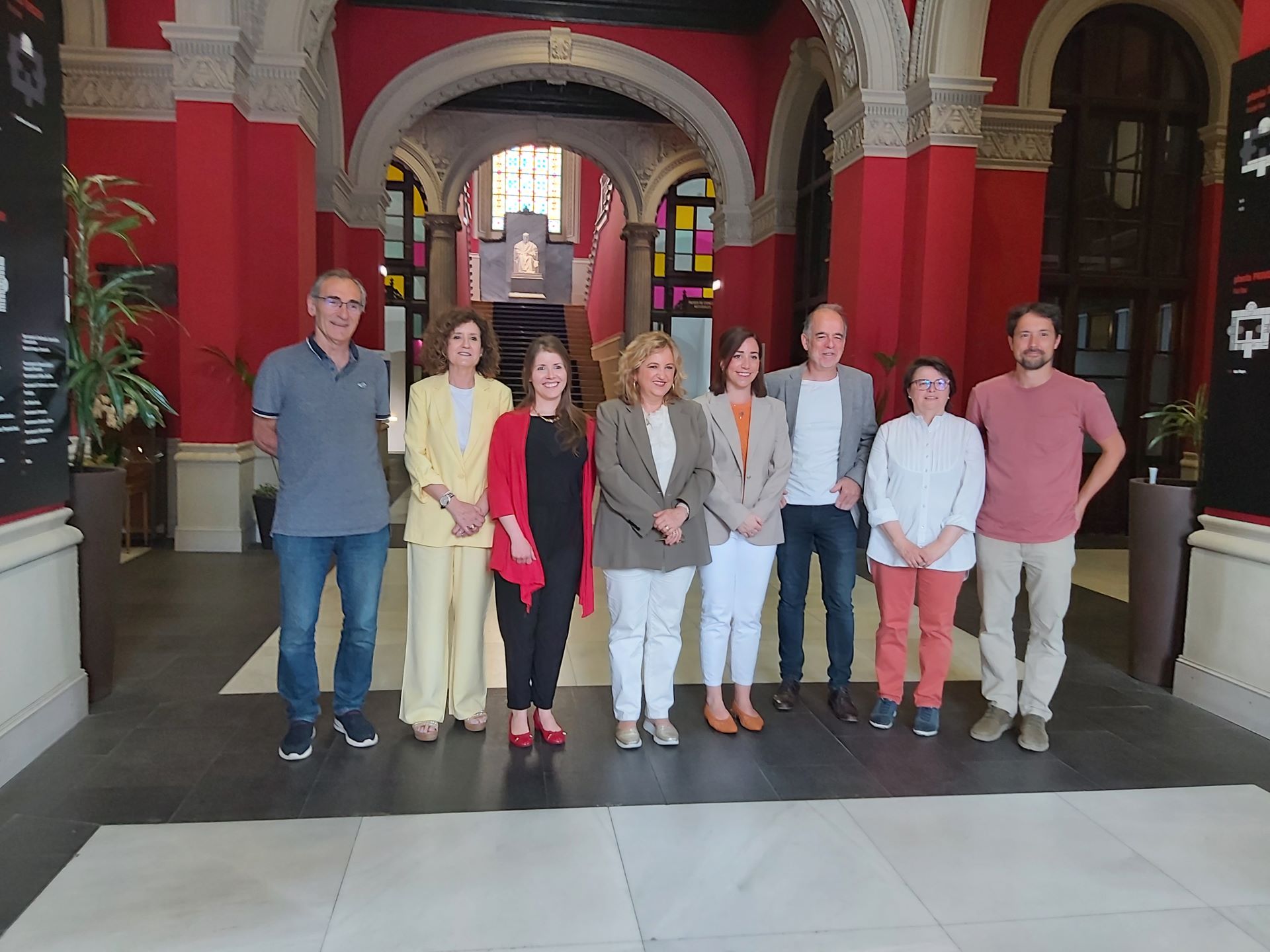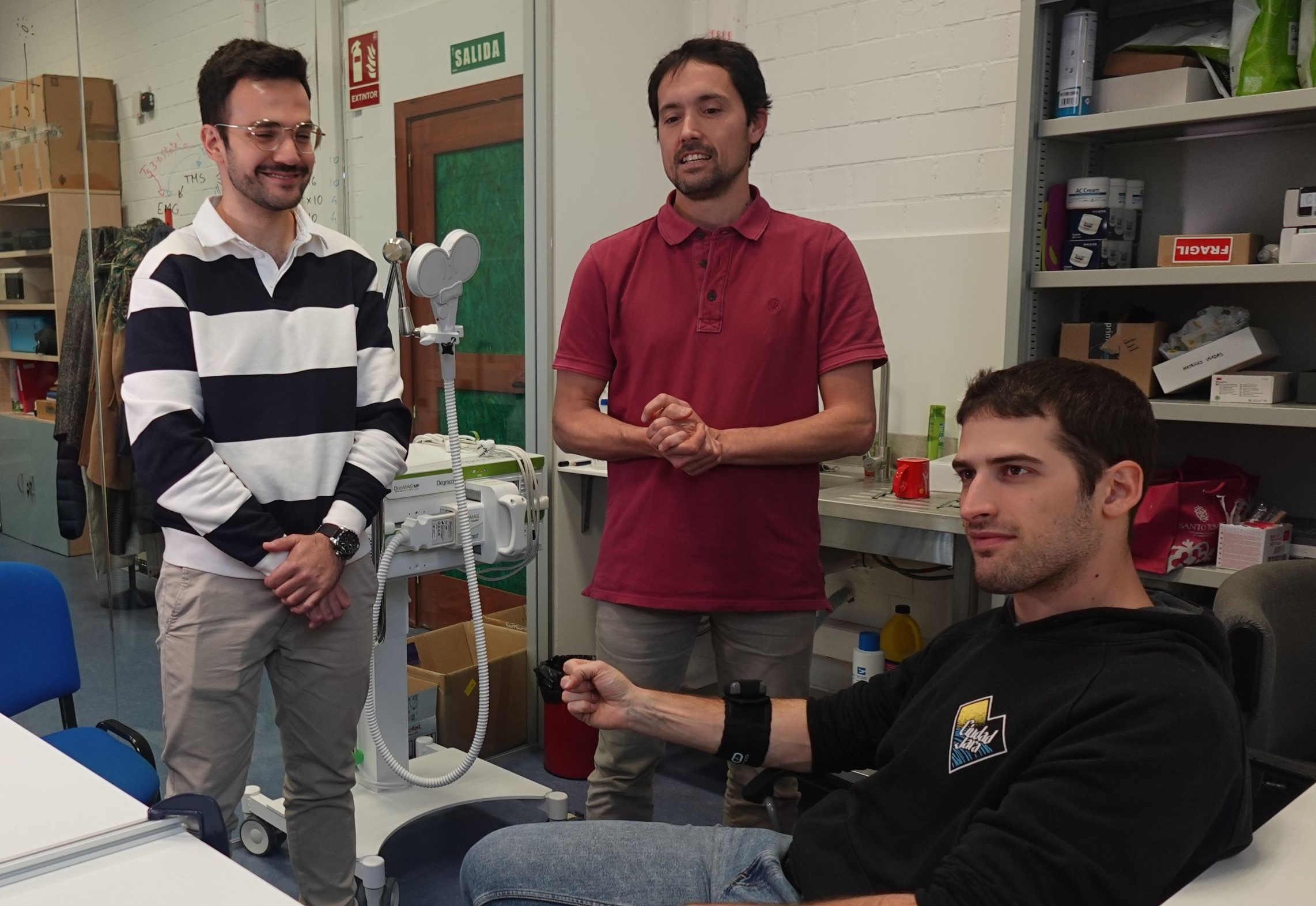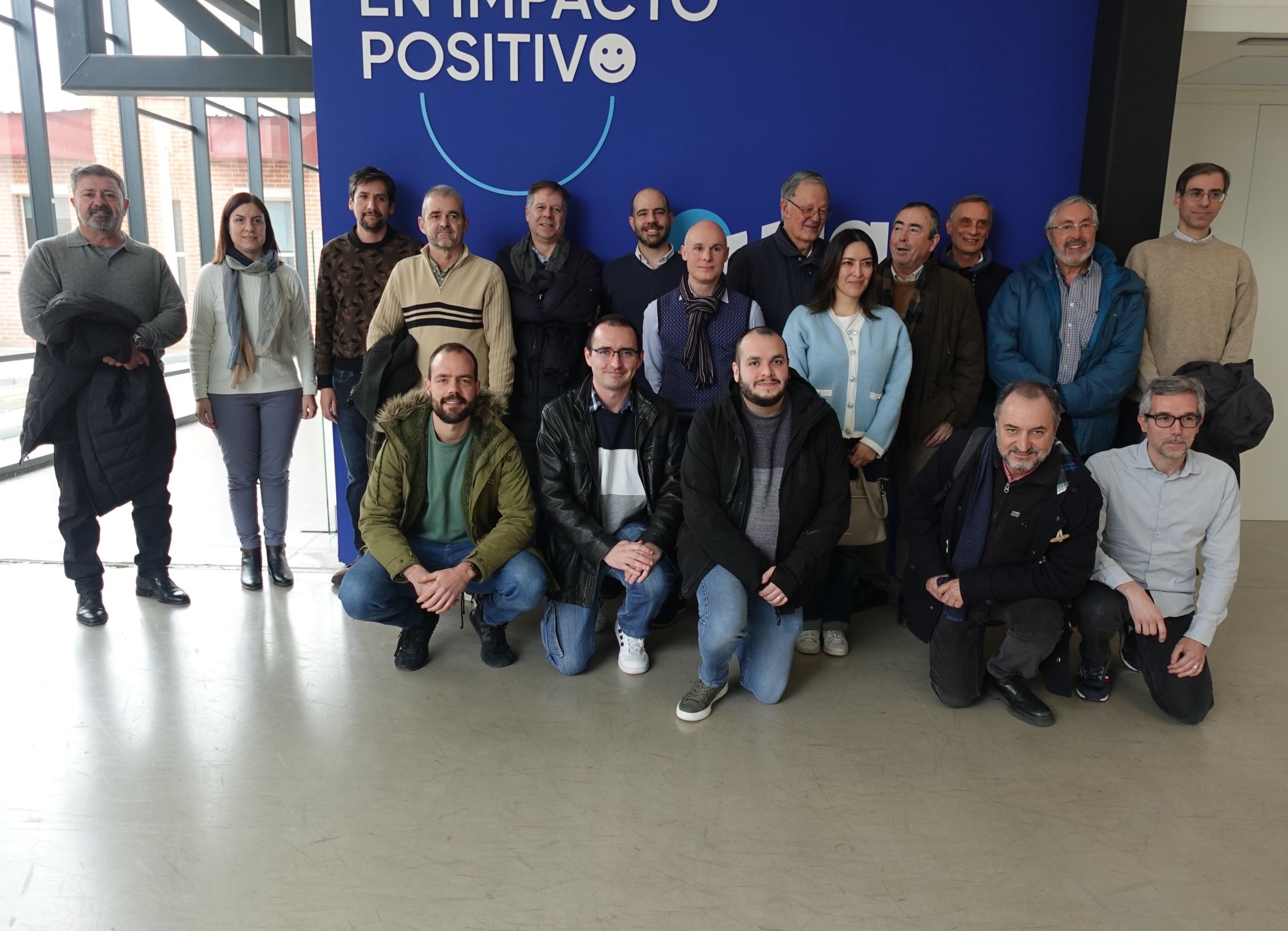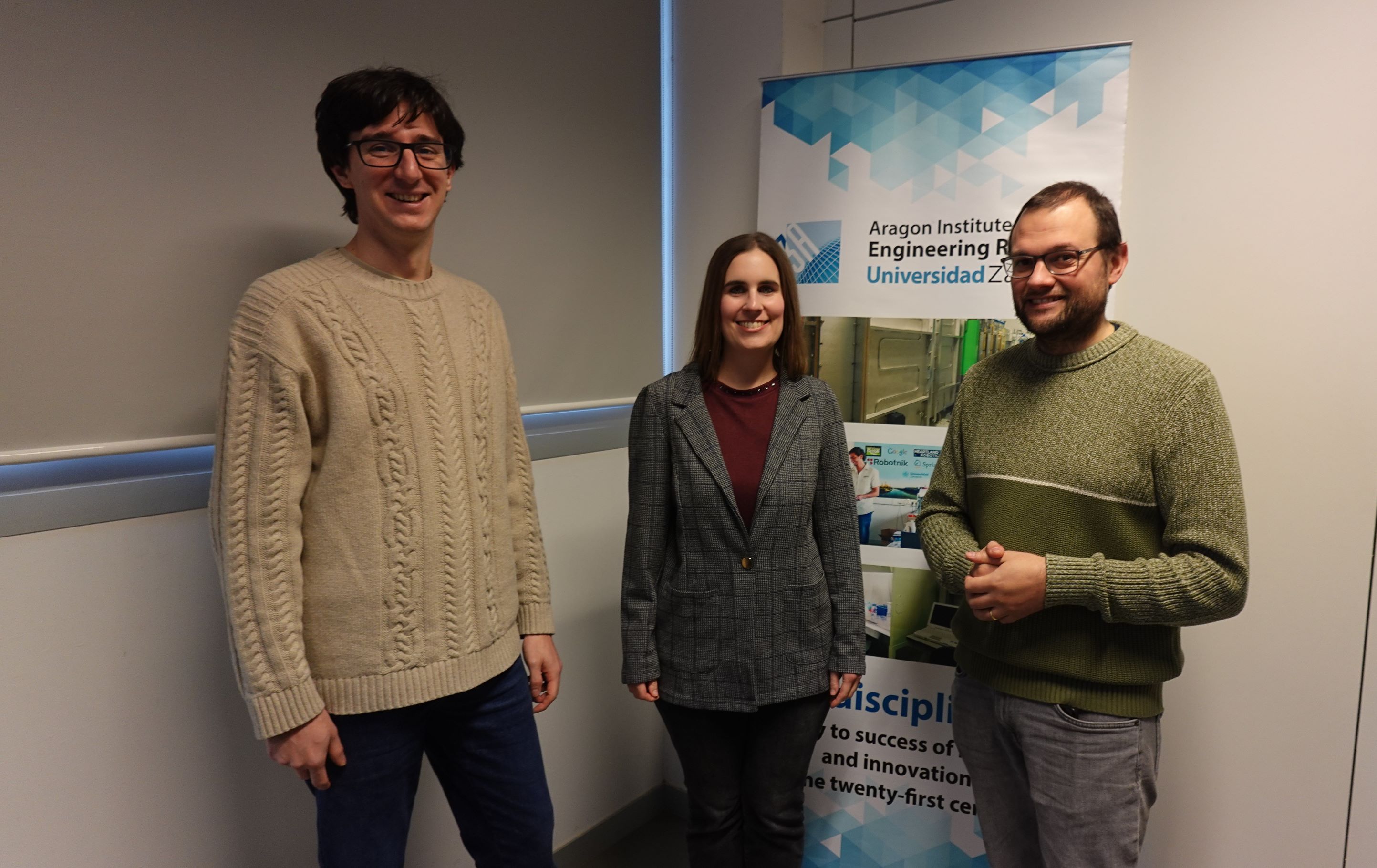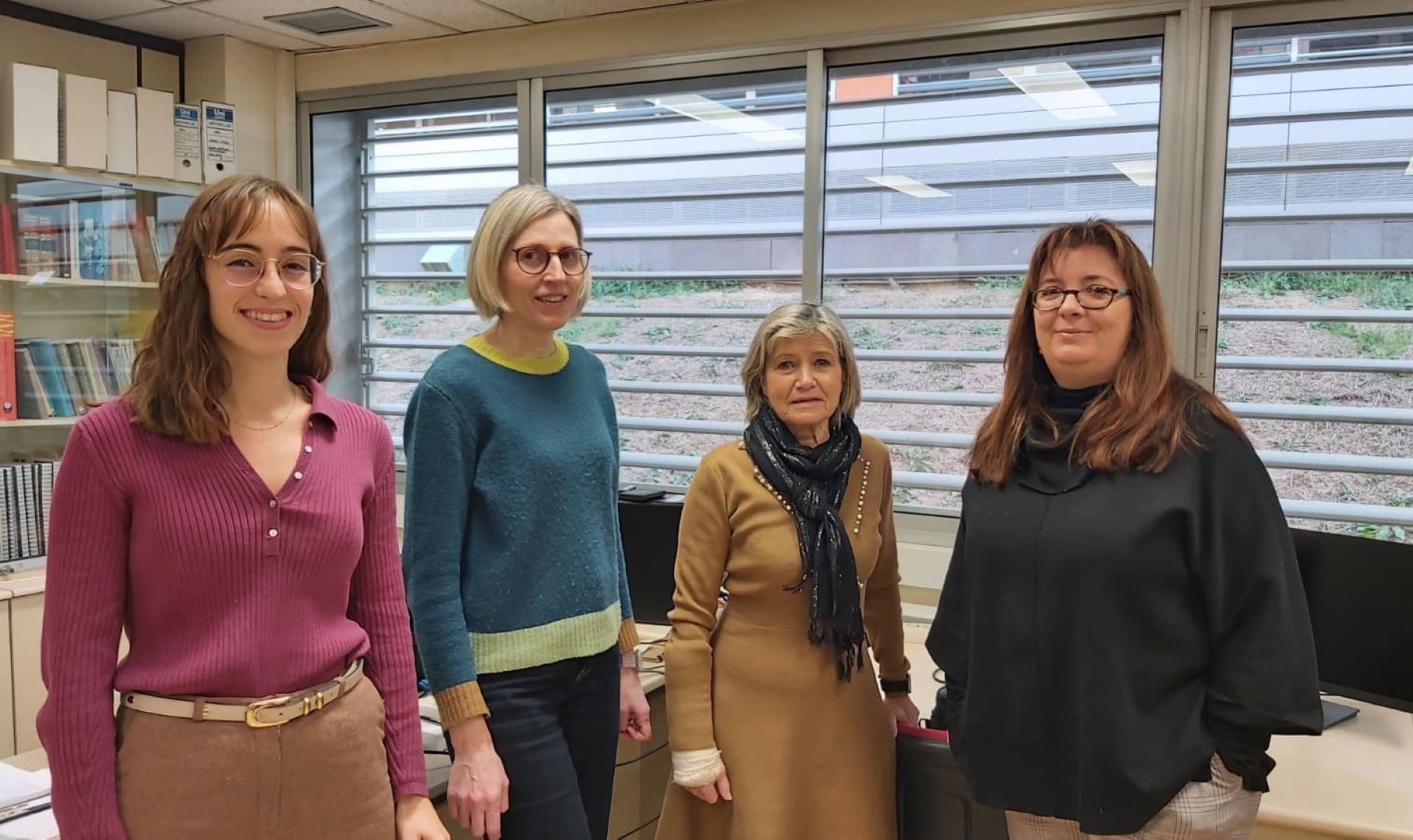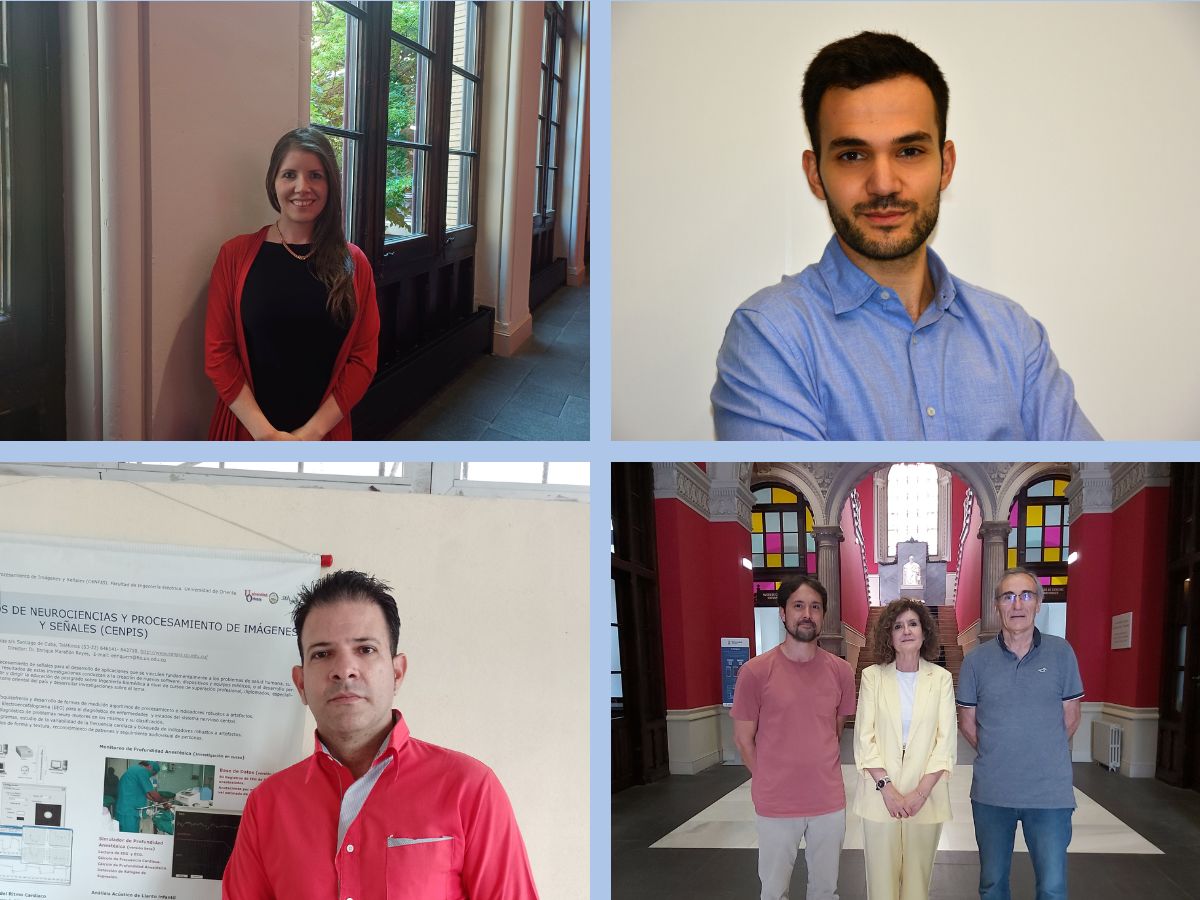
Three of the five young postdoctoral researchers joining the University of Zaragoza as part of the prestigious Marie Skłodowska-Curie call will be at the Aragon Institute for Engineering Research (I3A). They are Katiuska Alexandrino, Maikel Noriega and Alejandro Pascual.
Their research will focus on the reduction of pollutants in air transport, the monitoring and follow-up of stroke patients at home and the detection of brain rhythms for the treatment of patients with motor disorders. This work will be carried out under the supervision of scientists Uxue Alzueta, Pablo Laguna and Jaime Ibáñez.
Las Acciones Marie Sklodowska-Curie buscan garantizar el desarrollo óptimo y el uso dinámico del capital intelectual de Europa, con el fin de generar nuevas capacidades e innovación y, de este modo, alcanzar su pleno potencial en todos los sectores y regiones.
The aim of the Postdoctoral Actions (MSCA-PF) is to improve the scientific and innovative potential, training and employability of postdoctoral researchers through individual R&D projects. Thus, the MSCA PF represents an opportunity to attract and incorporate postdoctoral research talent of excellence, to develop high-impact research work in all scientific areas, for two or three years.
The prestige of these postdoctoral contracts is internationally recognised, as high-level research in the early stages of a postdoctoral research career is evaluated and competed at international level, rewarding the excellence of the project, the applicant postdoctoral researcher and supervisor, as well as the quality of the host institution.
Precisely, Spain is the first EU country for the fifth consecutive year in attracting talent in the Marie Sklodowska Curie call, obtaining 32.4M€ of the 258M€ of the call (return rates of 19.3€), and a total of 175 postdoctoral researchers selected to join Spanish research centres and universities.
In this respect, it should be noted that the University of Zaragoza has achieved significant European backing to attract young talent of excellence with the incorporation of five postdoctoral researchers and funding of nearly 900,000 euros.
Marie Skłodowska-Curie Postdoctoral Contracts are a European Commission initiative within Horizon Europe for a duration of 12-36 months to support the training and career development of postdoctoral research staff. This call finances the recruitment of staff of any nationality with a maximum of eight years of research experience.
Environment and Health Research
ChemCon Project. Chemical conversion of a sustainable aviation fuel (SAF): p-cymene. PI: Uxue Alzueta. Researcher: Katiuska Alexandrino. Amount: 181,152.96€.
Katiuska Alexandrino, of Portuguese and Venezuelan nationality, was born in Venezuela and lived in Ecuador for four years before coming to Spain. She holds a degree in Chemical Engineering from the University of Aveiro (Portugal). She completed her last year of studies at the University of Zaragoza with an Erasmus scholarship, where she also completed her master's degree. Subsequently, she obtained a pre-doctoral grant from MINECO to pursue her PhD. In February 2018, he obtained his PhD in Chemical and Environmental Engineering with summa cum laude, mention International Doctorate from the University of Zaragoza (UNIZAR), and has received the Extraordinary Doctorate.
ChemCon. The aviation industry is one of the largest consumers of fossil fuels and therefore a major emitter of greenhouse gases. Sustainable aviation is of paramount importance for the EU because of its need to reduce transport emissions by 90% by 2050 (compared to 1990 levels).
At the University of Zaragoza, the ChemCon project will be carried out using the facilities and equipment available at the Aragon Institute for Engineering Research (I3A), which aims to provide new experimental data and a chemical kinetic model that will contribute to a thorough understanding of the combustion behaviour and the ability to form fine particles and PAHs of p-cymene, an aromatic terpenoid produced from various natural raw materials.
ChemCon will be carried out in the multidisciplinary group of Thermochemical Processes (GPT), led by Prof. María Uxue Alzueta, an expert in the field of minimising pollutant emissions in combustion processes. This project will allow further progress in identifying the best operating conditions that generate fewer pollutants, which is of interest for proposing guidelines on the use of p-cymene in aircraft.
MESMODI-BCG Project. Methods for Monitoring and Diagnosis of Stroke based on ballistocardiogram (BCG). PI: Pablo Laguna. Researcher: Maikel Noriega Alemán. Amount: 181,152.96€.
Maikel Noriega completed his undergraduate studies at the Universidad de Oriente, Cuba. He developed his Master studies at the University of Zaragoza. The Master thesis in Biomedical Engineering and the subsequent PhD thesis were written in collaboration with one of the leading groups in the field of cardiovascular signal processing, the BSICoS group of the I3A.
The main objective of the MESMODI-BCG project is to obtain a prototype of an online BCG monitor that will allow healthcare professionals to monitor stroke patients at home.
To this end, the project will focus on two specific objectives:
The development of algorithms to aid the diagnosis of atrial fibrillation (AF) and sleep disorders (SD) and the development of a BCG-based prototype for non-invasive home monitoring and diagnosis of stroke patients. Both atrial fibrillation and sleep disorders are complications associated with morbidity and mortality in the acute phase of stroke, hence their detection in stroke patients is of vital importance.
MESMODI-BCG aims to contribute to the reduction of premature mortality from stroke by providing healthcare professionals with digital tools and solutions used in an effective, safe and inclusive way to better treat and manage the disease.
It is a multidisciplinary project that combines expertise in bioengineering, health sciences and telecommunications. It will be developed in collaboration between the BSICoS group and the Stroke Unit of the Miguel Servet University Hospital in Zaragoza.
RythMods Project . Implementation and validation of a closed-loop neural interface for modulating brain rhythms and motor reduction. PI: Jaime Ibáñez. Researcher: Alejandro Pascual Valdunciel. Amount: 165,312.96€.
Alejandro Pascual Valdunciel is a Spanish national from Imperial College London and a biomedical engineer. He did his bachelor's and then his master's degree in Biomedical Engineering at the Polytechnic University of Madrid and his PhD at the Neural Rehabilitation Group (NRG), at the Cajal Institute of the CSIC. He finished his thesis in 2022 and started working at Imperial College London as a postdoc. On 1 January 2025 he will start his MSCA project.
Neurological diseases, such as Parkinson's disease, are the leading cause of disability in the world. Although the role of brain rhythms is not fully understood, evidence suggests that certain movement disorders may be related to abnormal brain oscillations. For that reason, research into new ways of detecting and understanding such rhythms is key and could lead to the discovery of more effective approaches to treating patients with neurological disorders that affect their motor condition.
This research has the potential to transform the understanding of neurological disorders and develop new minimally invasive and cost-effective technologies to treat symptoms in movement disorders.
In RythMods, will use a technique that records the electrical activity of the muscle (high-density electromyography, HD-EMG), which will allow estimating brain rhythms in a non-invasive way from the extremities. They will use this information to develop an intervention with Transcutaneous Spinal Cord Stimulation, a non-invasive electrical stimulation technique that allows modulation of the Central Nervous System and induces functional improvements.
In the project, which will be developed by the BSiCoS research group, they will start by developing the technology platform, which will be tested on healthy people to demonstrate that they can detect brain rhythms and produce changes in the nervous system with Transcutaneous Spinal Cord Stimulation. In later stages of the project, they will test the technology on Parkinson's disease patients to reduce the motor symptoms of the disease.
Complete information about the Marie Curie programme and the University of Zaragoza: See press release
